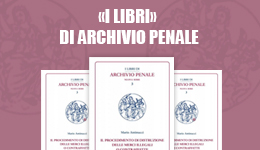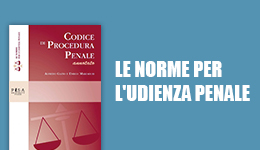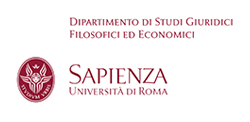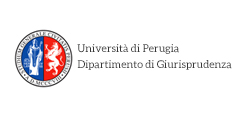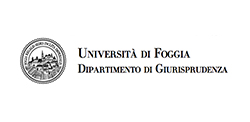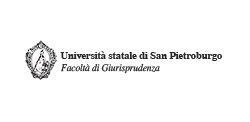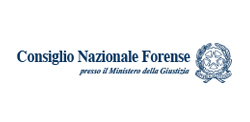Le crepe nella legittimità costituzionale dell’art. 75, co.2, D.lgs. n. 159 del 2011, dopo la sentenza De Tommaso
Archivio Penale
pp. 1005-1017
DOI 10.12871/978883318013716
| @ Pisa University Press 2017
Ricevuto: 10 November 2017
| Accettato: 23 November 2017
| Pubblicato: 26 November 2017
L'intero articolo è disponibile per gli abbonati
Riassunto
La Seconda Sezione della Cassazione invoca un controllo della Corte costituzionale su una disposizione del Codice antimafia che era già stata scrutinata negativamente dalla Grande Camera della Corte Edu (sentenza De Tommaso) e dalle Sezioni unite della Corte di cassazione (sentenza Paternò). Una mossa audace che rischia di sollevare un nugolo di conseguenze, in gran parte imprevedibili, nelle interlocuzioni tra le Alte Corti se solo si considera che la medesima disposizione era stata valutata come costituzionalmente legittima poco tempo or sono (sentenza n. 282/2010) dai giudici della Consulta. Sul medesimo disposto normativo convergono, ora, tre differenti approcci ermenuetici: quello della Corte Edu che ritiene violati i parametri convenzionali da un precetto penale che sanzioni condotte genericamente in collisione con l’obbligo di vivere onestamente o di rispettare le leggi dello Stato; quello delle Sezioni unite che stimano abrogato l’art.75 nella parte in questione dopo l’intervento della Corte di Strasburgo; quello della Consulta che, invece, aveva confermato la compatibilità costituzionale della norma in questione. Ora la Seconda Sezione rimette alla Corte costituzionale il compito di riannodare le fila di un trama ormai irrimediabilmente densa di smagliature. Si preannuncia un probabile redde rationem tra Corti.
The Second Section of the Cassation asks for a control of the Constitutional Court about a disposition of the Antimafia Code that had already been scrutinized negatively by the Great Chamber of the ECHR (De Tommaso judgment) and by the United Sections of the Court of Cassation (Paternò judgment).
This is an audacious movement that risks to produce a swarm of unforeseeable consequences, in the relationships among the Highest Courts if only it’s considered that not too long ago the same disposition had been valued as constitutionally legitimate (judgment n. 282/2010) from the judges of the Constitutional Court. About the same normative provision, now they converge three different interpretative approaches: the first one, that of the ECHR that holds violated the conventional parameters by a penal precept that sanctions behaviours usually in collision with the obligation to live honestly or to respect the laws of the State; the second one, that of the United Sections that esteem repealed the art.75 in the part in matter after the intervention of the Court of Strasburg; the third one, that of the Constitutional Court that, had confirmed the constitutional compatibility of the norm instead in matter.
Percorso di valutazione
Peer reviewed. Certificazione della qualità


